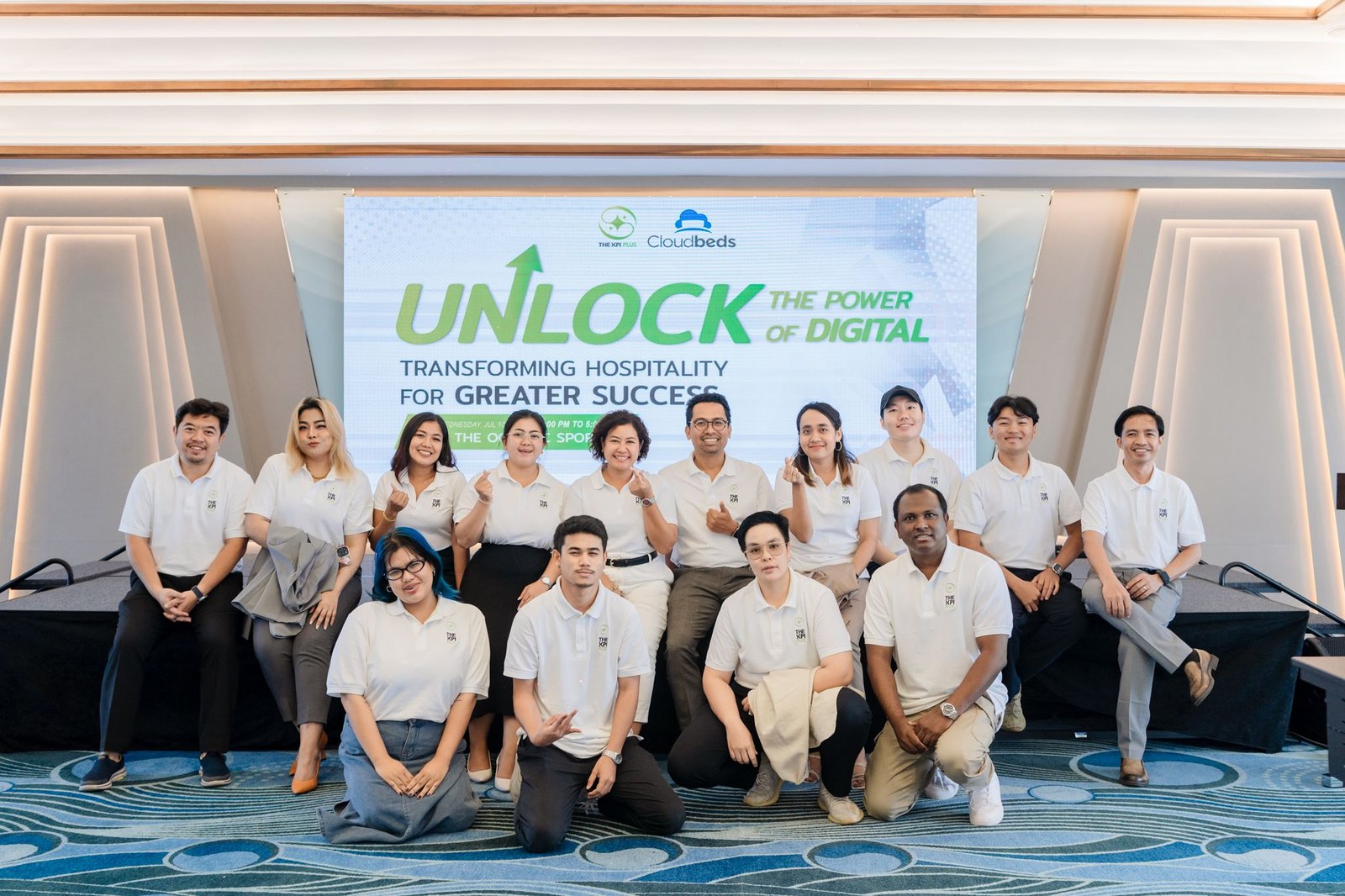As we move further into the 2020s, sustainability has transformed from a niche marketing angle to a fundamental business imperative in the hospitality industry. Modern travelers increasingly consider environmental impact when choosing accommodations, with 78% of global travelers intending to stay in sustainable properties at least once in the coming year, according to Booking.com’s 2024 Sustainable Travel Report.
For hotel owners and managers, implementing effective eco-friendly practices is no longer optional—it’s essential for remaining competitive, meeting regulatory requirements, reducing operational costs, and satisfying the growing demand for responsible tourism options. As we look toward 2025, several innovative and practical sustainability measures stand out as particularly impactful for hotels seeking to enhance their environmental credentials while maintaining exceptional guest experiences.
This guide explores the five most promising eco-friendly hotel practices to implement in 2025, balancing environmental benefit with operational feasibility and guest satisfaction.

1. AI-Powered Energy Management Systems
The Innovation
Traditional building management systems are being revolutionized by artificial intelligence and machine learning capabilities that dramatically improve energy efficiency while maintaining or enhancing guest comfort.
Implementation Strategy
Next-generation energy management systems go far beyond simple occupancy-based controls by:
- Predictive temperature adjustments: Using historical data, weather forecasts, and occupancy patterns to optimize HVAC operation before demand occurs
- Behavioral learning: Analyzing individual room usage patterns to customize energy settings to specific guest preferences
- Automated load balancing: Shifting energy usage to off-peak hours when possible and dynamically responding to grid demands
- Real-time performance monitoring: Identifying anomalies or maintenance needs before they cause energy waste
- Integration with renewable energy sources: Automatically prioritizing on-site renewable energy when available
The Numbers
Hotels implementing advanced AI energy management systems are reporting:
- 25-35% reduction in overall energy consumption
- ROI typically achieved within 18-24 months
- Potential for up to 40% reduction in HVAC-related costs
Guest Experience Benefit
Unlike earlier energy conservation measures that sometimes inconvenienced guests, AI systems work invisibly in the background. Guests experience consistent comfort while the hotel reduces its carbon footprint and operational costs.
Implementation Tip: Begin with a pilot program in one section of your property to demonstrate effectiveness before full-scale deployment.

2. Circular Economy Initiatives
The Innovation
Moving beyond basic recycling, forward-thinking hotels are embracing comprehensive circular economy principles that eliminate waste and pollution by design, keeping products and materials in use, and regenerating natural systems.
Implementation Strategy
Effective circular economy programs include:
- Closed-loop supply chains: Partnering with suppliers who take back and reuse or recycle their packaging and products
- Food waste to resource conversion: Implementing on-site composting or biodigesters that transform food waste into valuable resources (compost or energy)
- Refillable amenity programs: Replacing single-use toiletries with premium refillable systems that eliminate plastic waste while maintaining luxury standards
- Furniture and fixture lifecycle management: Designing interior spaces with modular, repairable components and establishing refurbishment programs rather than complete replacements
- Textile recirculation: Implementing systems to recycle worn linens and towels into cleaning cloths or other textile products rather than discarding them
The Numbers
Hotels with comprehensive circular programs are reporting:
- 80-90% reduction in landfill waste
- 30-40% reduction in procurement costs through reuse programs
- 50-60% reduction in plastic waste from amenities
Guest Experience Benefit
When properly implemented and communicated, these programs enhance the guest experience by aligning with traveler values while maintaining or improving quality. For example, refillable premium amenity dispensers can offer higher quality products than small single-use bottles while eliminating waste.
Implementation Tip: Start with a waste audit to identify your biggest opportunities for improvement, then prioritize actions with the highest impact.
3. Water Neutrality Programs
The Innovation
While water conservation has long been a focus in hospitality, leading hotels are now pursuing water neutrality—balancing their total water consumption through a combination of efficiency measures, water recycling, and watershed restoration initiatives.
Implementation Strategy
Comprehensive water neutrality programs include:
- Advanced greywater recycling: Installing systems that purify shower and sink water for reuse in irrigation, cooling towers, and toilet flushing
- Rainwater harvesting infrastructure: Capturing rainwater for non-potable uses with sophisticated filtration systems
- Watershed protection investments: Funding regional water conservation and restoration projects that offset the hotel’s water footprint
- Xeriscaping and native landscaping: Redesigning outdoor spaces to eliminate irrigation needs through climate-appropriate plant selection
- Smart irrigation technology: Using soil moisture sensors, weather data, and automated controls to minimize landscape water use
The Numbers
Hotels implementing water neutrality programs are seeing:
- 35-45% reduction in municipal water consumption
- Savings of $3-5 per available room night in water and sewer costs
- Enhanced resilience against water scarcity and related regulatory restrictions
Guest Experience Benefit
These systems operate invisibly to guests while providing reassurance that their stay isn’t depleting local water resources—particularly important in regions experiencing water stress.
Implementation Tip: Water neutrality requires a phased approach. Begin with efficiency measures that have immediate ROI, then gradually implement more advanced water recycling and offset programs.
4. Hyperlocal Supply Chain Transformation
The Innovation
Beyond generic “local sourcing,” leading hotels are creating integrated hyperlocal supply ecosystems that dramatically reduce transportation emissions while creating authentic, place-based experiences for guests.
Implementation Strategy
Effective hyperlocal supply programs include:
- On-site food production: Utilizing rooftop gardens, vertical growing systems, and even indoor hydroponic facilities to produce fresh ingredients within the property
- Microlocal supplier networks: Establishing direct relationships with producers within a 30-mile radius, including urban farmers, artisans, and specialty producers
- Long-term agricultural investments: Partnering with nearby farms to finance sustainable agriculture in exchange for dedicated production
- Zero-carbon logistics: Implementing electric vehicle delivery networks or even bicycle courier systems for ultra-local suppliers
- Regenerative purchasing policies: Selecting suppliers who are actively improving the local environment through their practices
The Numbers
Hotels with mature hyperlocal supply programs report:
- 90-95% reduction in supply chain transportation emissions
- 30-40% reduction in food waste due to shorter storage times
- 15-25% premium in restaurant revenue from authentic local food experiences
Guest Experience Benefit
Today’s travelers seek authentic, distinctive experiences that connect them to the destination. Hyperlocal sourcing creates unique selling points and storytelling opportunities that enhance the overall guest experience while supporting the local community and environment.
Implementation Tip: Start with a signature restaurant or bar program focusing on hyperlocal ingredients, then gradually expand the approach to other departments.

5. Transparent Carbon Footprint Management
The Innovation
Moving beyond basic sustainability reporting, leading hotels are implementing comprehensive carbon tracking systems that enable guests to understand and even offset the precise environmental impact of their stay.
Implementation Strategy
Advanced carbon management programs include:
- Room-specific impact measurement: Tracking the exact resources consumed in each guest room and calculating the associated carbon footprint
- Guest-facing carbon dashboards: Providing real-time information via the hotel app about the environmental impact of different choices (e.g., temperature settings, amenity usage, transportation options)
- Integrated offset programs: Offering seamless carbon offset options that support high-quality, verified projects
- Personalized sustainability options: Allowing guests to select their preferred level of sustainability measures during their stay
- Blockchain-verified reporting: Using blockchain technology to ensure transparent, tamper-proof environmental impact reporting
The Numbers
Hotels with transparent carbon management programs are reporting:
- 15-20% of guests voluntarily participating in offset programs
- 10-15% reduction in resource consumption through guest behavioral changes
- Significant differentiation from competitors in consumer perception studies
Guest Experience Benefit
Rather than imposing a one-size-fits-all approach, these systems empower guests to make informed choices based on their personal values while providing reassurance about the authentic environmental commitment of the property.
Implementation Tip: Begin with a comprehensive carbon audit to establish your baseline, then develop guest-facing communications that translate complex sustainability information into simple, actionable choices.
Implementation Roadmap for 2025
While these five practices represent significant advancements, successful implementation requires a strategic approach:
1. Assessment Phase (3-6 months)
- Conduct comprehensive sustainability audit
- Establish baseline measurements for energy, water, waste, and carbon
- Identify quick wins vs. long-term investments
- Evaluate guest preferences and expectations
2. Strategic Planning (2-3 months)
- Develop property-specific implementation roadmap
- Secure budget allocation and leadership buy-in
- Identify technology partners and suppliers
- Create staff training and engagement programs
3. Phased Implementation (12-18 months)
- Begin with pilot programs in specific areas
- Measure results and refine approaches
- Gradually expand successful initiatives
- Develop guest communication strategy
4. Continuous Improvement (ongoing)
- Establish regular review and reporting processes
- Set progressive sustainability targets
- Stay current with emerging technologies
- Gather and incorporate guest feedback
The Business Case for Implementation
While environmental responsibility drives many sustainability initiatives, the business case for these practices is equally compelling:
Cost Savings
- 20-30% reduction in overall utility costs
- Decreased waste management expenses
- Reduced procurement costs through reuse and local sourcing
- Lower maintenance costs through preventative systems
Revenue Enhancement
- Premium pricing potential for eco-conscious travelers
- Increased occupancy from environmentally motivated guests
- Higher food and beverage revenue from authentic local offerings
- Additional revenue streams from sustainability-related services
Risk Mitigation
- Preparedness for tightening environmental regulations
- Reduced vulnerability to resource price volatility
- Improved resilience against climate-related disruptions
- Protection against reputational risks
Competitive Advantage
- Differentiation in increasingly crowded markets
- Appeal to growing sustainable travel segment
- Enhanced marketability to corporate clients with ESG requirements
- Improved ratings on travel platforms that prioritize sustainability
Beyond Greenwashing
As we approach 2025, the hospitality industry stands at a critical juncture. With environmental concerns mounting and regulatory requirements tightening, superficial sustainability measures—often dismissively called “greenwashing”—no longer suffice. The five practices outlined in this guide represent substantive changes that deliver meaningful environmental benefits while enhancing the guest experience and improving business performance.
The hotels that will thrive in the coming years are those that approach sustainability not as a marketing tactic but as a core operational strategy that drives innovation, efficiency, and authentic guest connections. By implementing these advanced eco-friendly practices, forward-thinking properties can position themselves at the forefront of the industry while contributing to the environmental solutions our planet urgently needs.
The question for hotel operators is no longer whether to embrace comprehensive sustainability but how quickly and effectively they can implement the practices that will define hospitality excellence in 2025 and beyond.










